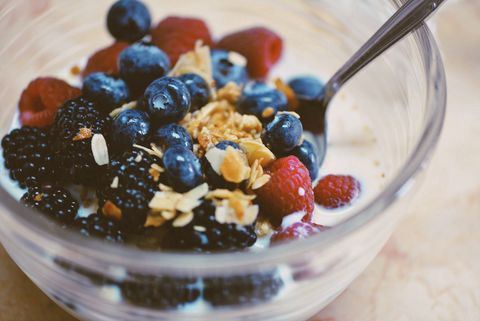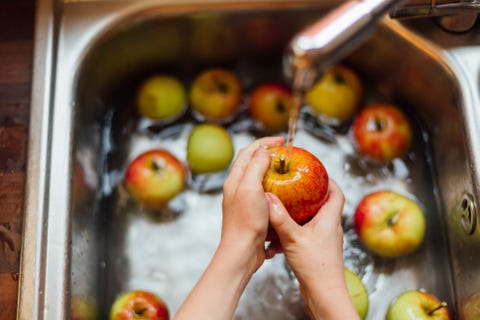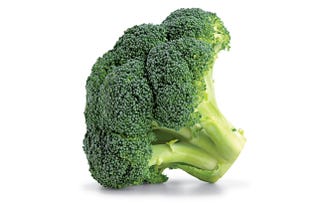
There’s nothing quite as uncomfortable as being stuck on the toilet after several failed attempts to poop. Constipation is extremely common, and roughly 42 million Americans will deal with it at some point each year, according to the National Institute of Health.
Technically, you’re considered constipated if you have less than three bowel movements a week or if you experience difficulty passing stool, according to the Mayo Clinic.
However, there is one thing that can keep you regular: fiber.
“You need fiber in your diet to help push foods through the intestinal tract,” Sharon Palmer, R.D.N, author of Plant-Powered for Life, told WomensHealth.com. Guys should aim for roughly 38 grams of fiber a day, according to the Academy of Nutrition and Dietetics.
Fiber typically comes in two forms. Soluble fiber, which is found in oatmeal, beans and avocados, absorbs water in your body to form a gel, which helps poop slide through the intestines more easily. Insoluble fiber, which is found in seeds and vegetable stalks, adds bulk to your waste, which helps speed up how often you poop. You need both to prevent constipation, but you should focus on increasing your overall fiber intake by eating a variety of food sources, like grains, fruits and veggies.
You can easily up your fiber intake with these 15 foods that will help relieve constipation:
Prunes
Photo Alto
Prunes are a traditional go-to for constipation relief. A study from 2014 showed that constipated subjects who ate 100 grams, or about 10, prunes every day for three weeks improved their stool frequency. The amount of prunes used in the study offers seven grams of fiber.
This is because the insoluble fiber found in prunes increases water in the stool, while the soluble fiber increases stool weight to speed up how often you poop, according to Healthline.
Add prunes to salads or in a trail mix if you can’t stomach them alone.
Kiwi
A single kiwi fruit contains 2 grams of fiber. Eating two kiwis a day could help relieve constipation, according to a study from 2007. Researchers studied a group of constipated adults who ate two kiwis each day for four weeks. They found that compared to their pre-kiwi diets, participants reported using fewer laxatives, experiencing more bowel movements, and straining less while in the bathroom.
Figs
Nosh on either dried or fresh figs to get your fiber fix. A serving of three to five figs delivers five grams of fiber, plus they’re easy to toss on salads or mix into Greek yogurt.
Sweet potato
Getty Images
Sweet potatoes benefit more than your digestive health: one cup of sweet potatoes offers four grams of fiber, plus antioxidant vitamin A, which keeps your eyes, teeth, and skin healthy.
Research has shown that sweet potatoes may offer cancer patients relief from chemotherapy-induced constipation.
Popcorn
The next time you need some help with your bowel movements, turn to this movie theater favorite.
“Popcorn is a great low-calorie way to get more fiber in your diet,” Dr. Charlene Prather, MD, MPH told Everyday Health.
Eat three cups of air-popped popcorn to get 3.6 grams of fiber.
Rye Bread
Try hitting the deli for your favorite sandwich the next time you have bathroom troubles. Research shows rye is more effective than wheat bread at improving constipation. In fact, people who ate roughly 240 grams of 100 percent whole rye bread each day had softer and more frequent stools compared to people who ate wheat bread. One slice of bread has roughly two grams of fiber.
Oatmeal
Getty Images
Doctors and dietitians are always singing the praises of oatmeal, and for good reason. This breakfast staple is linked to lower LDL, or bad cholesterol. It also keeps dieters full and has four grams of fiber per cup.
For extra fiber, top with dried figs or prunes.
Pears
Pears might not be the first remedy that comes to mind, but they are commonly used to help babies poop. With six grams of fiber in one medium pear, they’re also great for relieving constipation in adults, too.
Raspberries
Spinach
Health reported.
Apples
Getty ImagesWestend61
Apples are full of a specific type of fiber known as pectin, which can provide a laxative effect, Healthline reported. In fact, people who took pectin supplements for one month experienced less constipation and had more beneficial bacteria in their guts. A medium apple with the skin has 4.4 grams of fiber.
Lentils
This tiny legume packs a nutritional punch: one cup contains 15.6 grams of fiber, almost half of your target for the day. Plus, one cup has nearly 18 grams of protein.
Broccoli
Gallery Stock
Turns out, your mom was right to force you to finish your broccoli: one cup contains nearly three grams of fiber and is a good source of vitamins C, K and folate. Get the most nutritional benefit by eating broccoli raw as boiling can leach many nutrients and reduce fiber content, Everyday Health reported.
Nuts
Most people associate nuts with fat, but they also offer up plenty of fiber. An ounce of almonds contains 3.5 grams of fiber while an ounce of pistachios offers three grams.
Chia seeds
Chia seeds are trendy and it’s easy to see why: one ounce contains nearly 10 grams of fiber and almost five grams of protein. Plus, they’re easy to add to oatmeal, salads, yogurt or smoothies.
Source: Read Full Article




